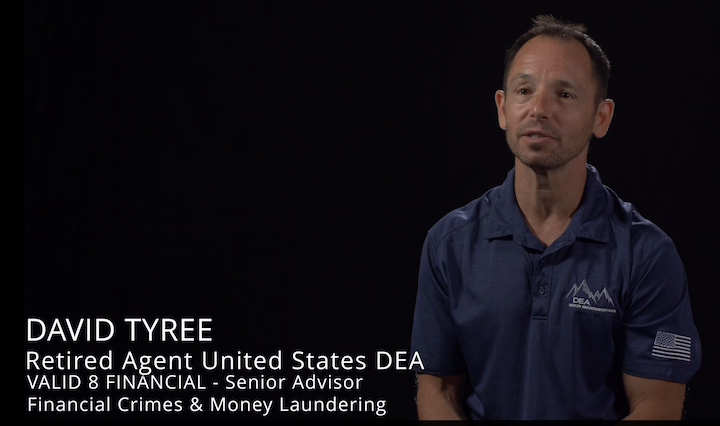The Evidence Ledger
The Great Resignation Meets Forensic Accounting: How Technology is Solving the Talent Crisis

Addressing staffing challenges in accounting firms and how automation helps attract and retain new talent
The forensic accounting profession faces an unprecedented challenge. As the Great Resignation continues to reshape the workforce landscape, accounting firms are grappling with talent shortages that threaten their ability to serve clients effectively. Meanwhile, the demand for forensic accounting services has never been higher, with fraud losses reaching an estimated $5 trillion globally each year according to the Association of Certified Fraud Examiners (ACFE).
This perfect storm of increasing demand and shrinking talent pools has forced firms to rethink their approach to both recruitment and retention. The solution isn't just about offering better compensation packages—it's about fundamentally transforming how forensic accounting work gets done.
The Talent Crisis in Numbers
The statistics paint a stark picture of the challenges facing forensic accounting firms:
- The accounting workforce in the United States shrank by over 300,000 in just two years, mainly because of the retirement of baby boomers.
- Experts are forecasting an “enrollment cliff” at U.S. colleges and universities with an enrollment decline of up to 15% between 2025 and 2029.
- 47% of hiring managers for finance and accounting teams said their greatest hiring challenge in this labor market is the lack of applicants with the required skills.
Senior-level expertise is becoming increasingly difficult to retain, with experienced professionals demanding better work-life balance and more meaningful work. Their top concerns?
Top 5 employer retention concerns, according to the Robert Half Salary Guide 2024:
- 37% – Heavy workloads/increased work pressures
- 31% – Poor pay
- 28% – Not being able to offer competitive salaries
- 25% – High rates of burnout
- 20% – Limited opportunities for career progression
For forensic accounting specifically, these challenges are compounded by the specialized skills required and the high-stress nature of fraud investigations. Junior staff often find themselves overwhelmed by tedious manual tasks, while senior professionals burn out from managing unrealistic caseloads.
Why Traditional Approaches Aren't Working
While firms have attempted to address staffing challenges through conventional means, these approaches often fall short of addressing the root causes of dissatisfaction. Higher salaries and bonuses provide temporary relief but don't eliminate the frustration of spending countless hours on manual data processing. Flexible work arrangements help with work-life balance but don't make the work itself more engaging or intellectually stimulating.
Extended hiring timelines only compound the problem, putting additional pressure on existing staff who must cover the workload gaps. Some firms have tried outsourcing certain tasks, but this creates quality control issues and doesn't build internal capabilities or provide career development opportunities for existing team members.
The reality is that talented professionals—especially younger generations—are seeking roles that offer intellectual stimulation, career growth, and the ability to make meaningful impact.
A 2023 Deloitte survey found 73% of younger employees (including Millennials and Gen Z) are willing to accept lower pay for purpose-driven roles. When the majority of their time is spent on data entry and manual reconciliation, even the most passionate forensic accountants quickly become disillusioned.
How Technology Transforms the Employee Experience
Forward-thinking forensic accounting firms are recognizing that advanced technology doesn't just improve case outcomes—it redefines the day-to-day work of forensic professionals. Instead of spending hours reconciling records, hunting for missing statements, or tracing fund flows manually, teams can now rely on specialized tools that streamline key parts of the investigative process. While many platforms focus on routine accounting tasks, few are built for the specialized needs of forensic teams. Valid8 is one of the only platforms designed specifically for investigations—automating evidence organization, surfacing inconsistencies, and visualizing financial activity in ways that make investigations more efficient and engaging. The result? Less time spent on tedious tasks, more time for meaningful analysis, and a work environment that better supports retention and growth.
Eliminating the Drudgery
According to Valid8's research, these labor-intensive tasks make up 90% of an investigation's total time, leaving little bandwidth for deep forensic analysis. With Valid8’s Verified Financial Intelligence (VFI) platform, data extraction and organization happens in hours rather than weeks, while transaction categorization occurs automatically using AI-powered algorithms. Financial reconciliation is completed faster and more reliably, reducing the time teams spend manually comparing statements. At the same time, pattern recognition capabilities help surface irregularities that may be missed through manual review—giving forensic accountants a clearer view of the financial landscape from the start. This automation allows forensic accountants to focus on what attracted them to the profession in the first place: solving complex financial puzzles and uncovering the truth.
Accelerating Professional Development
When junior staff aren't bogged down with manual tasks, they can engage in higher-level analytical work much earlier in their careers. This means exposure to complex cases from day one, rather than spending months on data preparation. Mentorship opportunities increase when senior staff have more time for coaching instead of being buried in manual processing work.
The result is accelerated skill development as professionals work on strategic analysis rather than administrative tasks. When work is intellectually challenging and impactful, career satisfaction rises. A survey by Moss Adams indicated that:
Improving Work-Life Balance
Technology dramatically reduces the unpredictable overtime that plagues traditional forensic accounting. Investigation timelines become more predictable and manageable when data processing doesn't require weeks of manual effort. Rush jobs no longer require all-hands-on-deck manual processing marathons that lead to burnout and family stress.
Eli Neal, CPA, ABV, CFF and Principal at 4 Corners Financial Forensics, attests to this. “I've got two young daughters—one just turned five, the other's nearly three. I really want to spend my time doing excellent work for my clients and also being with them. This means if I can avoid sitting in the basement, tirelessly entering data manually, it significantly adds value to my life.”
By leveraging automation and AI that is designed with forensic accountancy in mind, quality control improves significantly, reducing the need for time-consuming rework that often extends project timelines. Client relationships strengthen when firms can deliver faster, more accurate results, creating a positive feedback loop that benefits everyone involved in the process.
Neal concurs, “That's what I appreciate about using Valid8. Our firm is always busy, and this tool helps us stay sharp, diving right into the vital, complex analysis without any burnout. We get to start with high-quality work right away.”
Attracting the Next Generation
Today's accounting graduates have grown up with sophisticated technology and expect their professional tools to match that experience. According to PwC's 2024 Global Workforce Hopes and Fears Survey, more than 70% of respondents agree that AI tools will create opportunities to learn new skills, be more creative and improve the quality of their work.
Firms that offer cutting-edge technology find themselves significantly more attractive to top talent. It signals that a firm is forward-thinking and committed to leveraging the best available tools, rather than clinging to outdated processes that frustrate modern workers.
“Our firm is made up of mostly millennials, and we are passionate about harnessing cutting-edge technology to enhance our effectiveness,” Neal reports. “Over the last five to ten years, it has become possible to manage and analyze data at scales we couldn't before.”
The appeal goes beyond just having modern tools. New hires can immediately contribute to fraud detection, asset recovery, and financial analysis rather than spending their first year doing data entry. This accelerated path to meaningful work is a powerful recruiting tool that helps firms compete for the best talent against other industries that have already embraced automation.
For example, Valid8’s VFI platform equips investigators with organized, court-admissible data that makes it easier to spot patterns in financial activity and uncover irregularities that may signal fraud. Those using these tools sharpen their investigative skills with every case—gaining experience that not only strengthens outcomes but also boosts their long-term value in the field.
Real-World Results: Firms Leading the Change
The firms already using Valid8’s technology report significant improvements in both staff satisfaction and retention:
Brandlin & Associates shared that "Valid8 prepared data in less than 24 hours. We identified $4.5 million in fraudulent transfers and got the client to engage in a more comprehensive second phase, all within a week." This kind of rapid turnaround not only impresses clients but also keeps team members engaged with quick wins and visible impact.
Somerset Capital noted, "We are in the business of shortening the time to resolution. The business was losing money, things were breaking, and we didn't have the luxury of time to pursue things to the ends of the earth." Their experience highlights how technology enables firms to deliver results under pressure while maintaining team morale and work-life balance.
The Retention Revolution
The work becomes inherently more satisfying when forensic accountants can focus on solving complex financial mysteries rather than wrestling with data formatting and manual reconciliation. This shift from administrative work to analytical work aligns with what Daniel Pink identified in his bestseller Drive: The Surprising Truth About What Motivates Us as the core drivers of motivation for knowledge workers: autonomy, mastery, and purpose.
Career advancement accelerates because professionals using advanced technology develop capabilities faster and become more valuable to their firms. This leads to earlier promotions, increased responsibilities, and higher compensation, resulting in higher retention rates. Additionally, firms known for using cutting-edge technology attract attention from industry publications, conferences, and potential clients, raising the profile of their team members and creating additional career opportunities.
Building Tomorrow's Forensic Accounting Firm
The most successful firms of the future will be those that recognize technology as not just an operational tool, but a strategic advantage in the war for talent. This transformation requires leadership commitment and a willingness to challenge traditional approaches to forensic accounting work.
Investment in training ensures that teams can maximize the capabilities of advanced forensic tools, while workflow redesigns take full advantage of automation rather than simply overlaying technology on outdated processes. Over time, this could even shift success metrics from billable hours spent on manual tasks to case outcomes and professional growth.
The Future is Verified Financial Intelligence — Powered by Valid8
The forensic accounting professionals of tomorrow will expect to work with sophisticated, AI-powered tools that amplify their capabilities rather than bog them down with administrative work. Firms that provide this experience will attract the best talent, retain their top performers, and deliver superior outcomes for their clients.
The talent crisis in accounting is real, but it's also an opportunity. Firms that recognize technology as the key to transformation won't just survive the current challenges—they'll emerge stronger, more efficient, and better positioned for future growth.
Ready to transform your firm's approach to talent retention? Discover how Valid8's Verified Financial Intelligence platform can help you attract and retain the next generation of forensic accounting professionals. Contact us today to learn more.



















